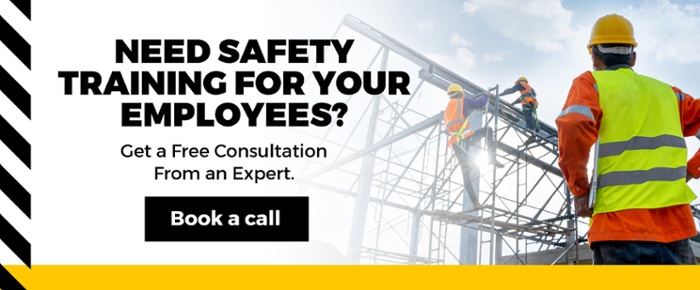When costs and deadlines loom large over a project, employers may consider maximizing their employee’s time and expanding worker duties. This can be a smart move if the experienced employee has the proper construction certifications, but it can be disastrous if they don’t.
Which Construction Equipment Requires Certifications?
With workplace safety, the importance of properly certified employees cannot be overstated. Heavy equipment accidents include rollovers, struck-by incidents, entanglements, entrapments, crushes, falls, and even electrocutions. With much focus rightly placed on workplace falls, employers can overlook that trucks, cranes, and other heavy equipment are the second-leading cause of major workplace injury and death.
At a minimum, employers risk costly damage to expensive equipment or materials. They could face fines and other penalties if a job-site audit uncovers uncertified workers. With a major incident, employers can expect huge monetary penalties, damaged reputations, lawsuits, and lost business.
Common construction equipment that requires certifications include:
- * Forklifts
- * Cranes
- * Excavation equipment, like backhoes, excavators, and front-end loaders.
- * Loading/hauling equipment, like loaders, bulldozers, and dump trucks
- * Grading and paving equipment, like rollers, graders, and aggregate spreaders
Let’s drill down to some of the OSHA certification requirements for heavy equipment operators.
Forklift Operator Construction Certification
The Occupational Safety and Health Administration (OSHA) standard 1910.178 requires forklift operators to have specific construction certifications obtained through approved training programs. This type of construction certification has 22 separate topics, testing requirements, and hands-on evaluation for each type of forklift the operator uses.
Crane Operator Construction Certification
As moving heavy loads at height in multiple directions is extremely hazardous, OSHA requires a specific certification for crane operators under standard 1926.1427. The training must be done by a nationally recognized agency, and the employee must demonstrate full knowledge of safe crane operation.
The operator must attend classes, take part in hands-on training and pass a written exam.
Heavy Equipment Operator Construction Certification
Heavy equipment certification for excavation, loading, hauling, grading, and paving requires operators to be certified on each piece of equipment. Much of this training is on the job and provided by experienced instructors, but that doesn’t mean you can take shortcuts and certify your operator after a quick equipment overview. A comprehensive training program not only shows the operator understands the controls but also understands how to inspect the heavy equipment. They should understand basic repairs, hand signals, and how to evaluate their work area for safety compliance and risk management.
Some equipment performs double duty, such as a backhoe digging and loading, or dump truck hauling and unloading. It is not enough to assume the worker can perform both functions. The equipment operator must show they understand how to use all the functions the equipment can perform, and they may need to carry a specific driver’s license in addition to the construction certifications.
How often Do Construction Equipment Operators Need Recertification?
Crane operators must recertify every five years, or if the employer determines the operator’s performance warrants retraining and recertification.
Forklift operators require recertification every three years, or if the employer determines the operator’s performance warrants recertification and retraining.
Employers must show a heavy equipment operator can perform well in each piece of heavy construction equipment they use. For the best protection, employers should have proof of continuous competence by keeping records of all safety training, construction certifications, and on-site evaluations.
Where to Get Construction Certifications
To get the specific construction certifications for cranes, an approved third-party operator delivers the training from the National Commission for the Certification of Crane Operators (NCCCO).
The employer can provide forklift certifications under certain conditions and provided they have a qualified instructor. With so many requirements under the regulations, many employers choose to outsource this training to a safety firm or forklift specialist.
On-the-job training meets many requirements for other heavy equipment certifications. However, the training must meet OSHA requirements and be delivered by a qualified person. Many employers choose to bring in professional safety companies for this training, certifying multiple heavy equipment operators at one time.
Keeping Track of Construction Certifications
It’s important to remember that besides OSHA requirements, many states have additional regulations and licensing requirements. With so many pieces of construction equipment that require certifications, it’s easy to overlook critical details and expose yourself to unnecessary liability risks. Outsourcing the management of your safety programs and training not only lets you focus on your business, but it also reduces these risks and helps keep your employees safe.
SafetyPro Resources offers a suite of safety services we build to fit your company and budget. To start streamlining your safety program, contact us today and schedule your free consultation.


















